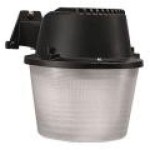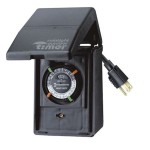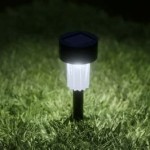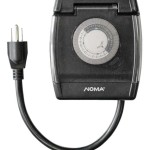My Outdoor Security Light Keeps Flashing On and Off
A flashing outdoor security light can be a source of frustration and concern. While it sometimes indicates a simple fix, it can also point to more complex wiring issues. This article explores the common reasons why outdoor security lights flash on and off and provides potential solutions.
1. Bulb Issues
One of the most common culprits for a flashing security light is a faulty bulb. Incandescent bulbs nearing the end of their lifespan often exhibit flickering or flashing behavior. Similarly, LED bulbs, while generally more long-lasting, can be sensitive to voltage fluctuations and may flash if not properly compatible with the fixture. A loose bulb can also cause intermittent flashing as the connection weakens.
To troubleshoot this, first ensure the bulb is securely screwed into the socket. If the flashing persists, try replacing the bulb with a new one of the correct type and wattage. If using an LED bulb, ensure it is specifically designed for outdoor use and compatible with the fixture's voltage.
2. Faulty Sensor
Many outdoor security lights utilize motion sensors to activate when movement is detected. Over time, these sensors can malfunction due to exposure to the elements, insect infestations, or simply wear and tear. A failing sensor can cause the light to behave erratically, triggering it to flash on and off even without motion.
Testing the sensor involves observing the light's behavior in its intended operating mode. If the light flashes even when no motion is present, or fails to activate when motion is detected, the sensor is likely the issue. In most cases, replacing the sensor is the most efficient solution.
3. Wiring Problems
Loose or corroded wiring can disrupt the flow of electricity to the light fixture, causing it to flash intermittently. This can occur within the fixture itself, at the connection point to the house wiring, or even within the circuit breaker panel. Exposure to moisture and temperature fluctuations can accelerate corrosion, particularly in outdoor environments.
Investigating wiring problems requires caution and preferably the expertise of a qualified electrician. Before handling any wiring, ensure the power to the circuit is turned off at the breaker panel. Check for loose connections, frayed wires, and signs of corrosion. If any issues are identified, consult with an electrician to ensure safe and proper repair.
4. Light Sensitivity Adjustment
Many security lights include sensitivity adjustments for the motion sensor. This allows users to control how easily the light is triggered by movement. If the sensitivity is set too high, the light might react to small movements, such as tree branches swaying in the wind, causing it to flash on and off repeatedly.
Adjusting the sensitivity involves locating the sensitivity control, usually a dial or switch on the sensor, and lowering the setting. Experiment with different settings to find the optimal balance between responsiveness and avoiding false triggers caused by minor movements.
5. Timer Settings
Some security lights incorporate timer settings to control how long the light remains on after being triggered. If the timer is set to a very short duration, the light may flash on and off quickly, giving the impression of a malfunction. Alternatively, a faulty timer mechanism can also cause erratic flashing.
Review the timer settings on the light fixture and adjust them to a longer duration if necessary. If the flashing continues despite adjusting the timer, the timer mechanism itself may need to be replaced or the entire fixture may require replacement.
6. Power Surges
While less common, power surges can damage the electronic components within a security light, leading to unpredictable behavior such as flashing. Power surges can result from lightning strikes, downed power lines, or issues within the electrical grid.
Protecting against power surges involves installing surge protectors on the affected circuits. If a power surge is suspected as the cause of the flashing light, consider having a qualified electrician inspect the wiring and fixture to ensure no lasting damage has occurred.
7. Compatibility Issues
In some cases, the type of bulb used may not be compatible with the light fixture or its circuitry. This can be particularly relevant with LED bulbs, which have different electrical characteristics than traditional incandescent bulbs. Using an incompatible bulb can cause flickering or flashing.
Consult the manufacturer’s specifications for the light fixture to determine the recommended bulb type and wattage. Ensure the bulb being used meets these specifications. If using an LED bulb, specifically choose one that is advertised as compatible with outdoor security lights.

Why Do Led Flood Lights Flashing On And Off How To Fix Ledsuniverse

Motion Sensor Lights Tips To Reset Detector

Why Do Led Flood Lights Flashing On And Off How To Fix Ledsuniverse

Why Does My Security Flicker At Night Blog De Microsegur
My Outdoor Security Light Won T Turn Off George Brazil Plumbing Electrical Phoenix Az

Why Is Outdoor Led Flood Light Flashing On And Off

Why Your Led Flood Light May Be Flickering

Why Do My Motion Sensor Lights Keep Flashing On Off Ledwatcher

Flickering Motion Sensor Led Light

How To Buy Motion Sensor Led Solar Security Light Lepro Blog







